- Home
- Patrick Robinson
Kilo Class (1998) Page 34
Kilo Class (1998) Read online
Page 34
He drove across the little island and took the ferry on to Gulangyu. The rain had eased, and the sun was coming through, warming the lush, verdant grounds of the oceanfront properties. Jicai was already there by the time he arrived home and was having tea and pastries with Lan and the children. The South Sea Fleet Commander apologized for being more than an hour early, but he had been dropped off by helicopter from the base at Canton.
The two men retired immediately to Zhang’s private study on the west side of the house, where maps of the Indonesian islands had been laid out.
“What d’you think of the Sunda Strait?” asked the C in C.
“I don’t think so. Not for an underwater passage,” replied Jicai. “I don’t much like the waterway. It’s quite busy. But what I really do not like are the northern approaches. The entire place is covered with damned oil fields.” He pointed at the charted area fifty miles east of the coast of Sumatra. “Look at this lot. You have the Cintra, Kitty, Nora, and Rama fields…then farther north the Yvonne, Farida, Zelda, and Tita. The whole place is a mass of oil rigs, production platforms, tanker moorings, tanker storage areas, platforms on pipelines…it goes on for miles…and it’s shallow. No one would choose to make a submerged voyage anywhere near there. In my opinion the Sunda Strait is a nonstarter.”
“How about the next one along…six hundred and fifty miles east, the narrows that separates Java and Bali?” Zhang was happy to defer to the Southern Commander in these investigations. Admiral Zu was a submariner and had served as the commanding officer of the five-thousand-ton nuclear boat Han 405, with its high-tech French intercept radar and modern Russian homing torpedoes. Commander Zu Jicai had made quite a name for himself in the mid-1990s when he was caught and tracked by a US Carrier Battle Group off the coast of North Korea.
Chinese Naval propaganda made much of his skillful handling of the submarine, and of the fact that Zu lived to fight another day after facing down the marauding American eagle. They made little of the fact that the Americans could easily have sunk Jicai at any time they wished, had they been so inclined.
Nonetheless, Admiral Zu Jicai was regarded as one of the best Chinese submariners…a status Arnold Morgan had uncharitably described as “like the world’s tallest midget.” But in an essentially nonmaritime nation, which China has been, at least militarily, for several hundred years, Zu Jicai knew more about submarines than almost anyone else in China.
“Don’t really like the Bali Narrows, sir,” he said. “It’s too shallow at its narrowest part…less than half a mile wide. And there’s only ninety feet of depth coming out on the southern side. That’s no real problem, but the narrows are too dangerous, too risky, especially with uranium on board. I’d never consider it.”
“Are we reaching the point where we must declare the whole exercise impossible as a subsurface transit? Coming through the Indonesian islands?” Admiral Zhang looked puzzled.
“No, sir. They could get through the Lombok Strait dived…right here…eighty miles east of the narrows. This stretch of water, it’s about twenty-five miles across between Eastern Bali and the island of Lombok. And the seaway splits into two good deep channels. It’s deep, at least six hundred feet all the way through…even this shallow part, just here at the southeastern exit point, shows four hundred feet on the chart.”
“It’s a long way east, Jicai,” said Zhang, peering at the chart. “They would have to take a different route from the short run down the South China Sea.”
“Yessir. They would. They’d have to head southeast as soon as they dived off Taiwan. Then they’d make a course east of the Philippines…through the Celebes Sea…right here. Then through the Makassar Strait, which is not only deep, it’s also a hundred and fifty miles wide. See these depths, sir? Six thousand feet…shelving up to two thousand feet…all the way down to the Lombok Strait it’s never less than fifteen hundred.
“I cannot be certain, of course, sir. But if I was asked to transport a dangerous cargo from Taiwan, underwater, in a highly classified operation, that is the route I would take—east of the Philippines and through the Lombok.”
“How far would that be, Jicai?”
“About a thousand miles from Taiwan to the southern point of the Philippines. Then a twelve-hundred-mile run down to the Strait. Look here, sir, the water’s four thousand feet deep just north of the gap. There’s no shoal water across the route, there’s no need to surface, and there’s shallow water for cover. It’s perfect for them.”
“Do we know when the next Hai Lung is due to clear Suao?”
“Yessir. Two days from now. July twenty-third.”
THE TWO CHOKE POINTS. The puzzle for Admiral Zhang—would a stealthy submarine use the quicker but shallower Sunda Strait? Or would it run deep, 730 miles to the east, through the wide Lombok Strait?
“That means she could be at the Strait in two weeks?”
“Correct, sir.”
“What do you think, Jicai? Two ACINT trawlers right here at the entrance to the Strait? Would that pick them up? We’d know its direction, and we’d be a lot wiser than we are now.”
“Two would do it. Three would be better. And then we would finally know if the Hai Lung was indeed three weeks away from its ultimate destination, sir, heading south.”
“Yes, Jicai. Yes we would. Perhaps three weeks away from some nuclear factory…which we must find.”
“The ACINTs are at twenty-four hours’ notice for sea, sir. We have three of them based well south at Hainandao. We have enough time to brief them before sailing, and we’ll have them on station well ahead of the Hai Lung.”
“We’ll do that right now, Jicai. We’ll go together. I’ll get your signal orders out later.”
The last weekend in July was a Cape Cod masterpiece. The warm, damp sea mists that had obscured the sun for so many days throughout the month had drifted away at last, and the gleaming bright light of midsummer lit up the waters of Nantucket Sound.
Not a cloud littered the pink evening sky as the sun went down behind the white steeple of the Church in Cotuit—at least it did if you happened to be drifting home across the bay on the evening tide, as Commander Boomer Dunning and his two daughters were doing at this moment.
His wife had a different view from the big family house, which faced southeast. She could see the surreal light of the setting sun along the sandy beach of Deadneck Island, which made it look floodlit.
From any direction Cotuit Bay was a beautiful sight on this warm summer evening. Secure in her earthly paradise Jo Dunning waved at her crew as thirteen-year-old Kathy ran the family skiff, Sneaker, expertly into the beach. Boomer jumped off the bow and dragged the boat up on the sand. Then they all pulled it a bit farther, and Kathy and her younger sister took down the big gaff-rigged sail. Of course it would have been more orthodox to put the boat on a mooring like most everyone else, but Boomer said he’d been running little sailboats up the beach all his life on calm summer evenings, and as the senior officer that was the way it was going to be.
For Jo, this Sunday evening and the barbecue they were about to light represented one of the rare bonuses she had received all summer. Boomer had arrived unexpectedly on Friday night and announced that he was not due back in New London until Monday morning. Her in-laws were away for three weeks in Maine, and the white clapboard house on the bay was theirs alone. Their real vacation here was not due to begin until August 5, when Boomer had a ten-day furlough, and right now Jo Dunning was at least as happy as she ever remembered being.
On the previous day, she and Kathy had won the weekly Cotuit skiffs race during the long, sunny afternoon, while Boomer and Jane had walked up the road to watch the village baseball team. The fabled Cotuit Kettleers had wiped out the Hyannis Mets 9-0 at Lowell Park.
As he cheered his men on, Boomer did not know that Frederick J. Goodwin, the Cape Cod Times feature writer, was sitting in the visitors’ area of the bleachers, glumly watching his team make four errors and walk seven Kettleer batters. It was an unfortunate omis
sion, because the US Naval officer and the journalist had something in common, they being the only two people in the ballpark who had once journeyed to the island of Kerguelen. And each of them had a deep and personal involvement with that remote and terrible place.
The second omission in Boomer’s life this weekend was more serious. He had not yet plucked up courage to tell Jo their vacation together was off—when he left for the submarine base on Monday morning, it would be for several weeks. Maybe months. And the operation was Black. Jo would never know where he was, or when he was coming home again. Boomer was not wildly looking forward to that particular conversation.
To prepare himself for the ordeal he busied himself with the barbecue. While it reached its optimum heat to cook the big New York sirloins, he wandered inside to pour a couple of Navy-size drinks for himself and Jo—two tall rum and cranberry juice cocktails, on the rocks, in frosted glasses. Then he strolled outside and gave his beautiful wife a kiss and a drink and told her that no hour ever passed by, no matter where he was, or where he was headed, when he did not think of her, and all that she had always meant to him.
“Boomer,” she said suspiciously while looking at him as if at a naughty schoolboy. “You must have something you are waiting to tell me…something lousy, I’d guess.”
Realizing that he had seriously overplayed his hand, the commanding officer of Columbia elected to seize the moment rather than prolong the agony until after supper. “Jo,” he said, slowly. “I have to go away…for several weeks.”
She stared at him for a moment, a sudden sadness sweeping across her face. Whatever he said, it would make no difference. It was not his fault, she knew. She was a Navy wife. This was not unique. But it happened so often.
“When?” she asked simply.
“I won’t be back after tomorrow morning.”
“How long?”
“I can’t tell you. A while.”
“Can I know where?”
“No.”
“Is it Black?”
“Uh-huh.”
“Oh…oh my God. Not months?”
“Probably weeks.”
The endless nightmare of all commanding officers’ wives stood before her. The weeks stretched out to infinity. There would be, she knew, no one to whom she could turn for information. His loneliness out there in command of the great hunter-killer submarine would, in the end, be hers. In the face of danger too great to contemplate, they would both be alone.
She willed herself not to cry, but another summer was shot to pieces, another year really. She turned away toward the grill and just told him, defenselessly, “I love you, Boomer.” And then she felt his great sailor’s arms around her, and she fell apart without shame against his massive chest. In front of the glowing fire. In front of their daughters.
In the far distance, the almost-full moon began to rise over the boat sheds by the Osterville town bridge. And very soon, on this clear night, there would also rise out over the Atlantic one of the brightest constellations in the galaxy…that of Orion himself. The other hunter.
Commander Dunning arrived at the gates of the New London submarine base at 0845. It had taken him two hours to travel down I-95 from the Cape. And he swiftly made his way to the jetty where Columbia awaited, her crew making final preparations for a long patrol.
There was a huge sense of purpose right now as they loaded the hardware—torpedoes, missiles, spare parts, welding kit, acetylene, extra computers, seals, hydraulics, rubber and plastic pipes, valves, tubs of grease, paint, and polish, and carbon dioxide for the Coke machine.
Supplies such as steaks, pork roasts, ham, bacon, eggs, potatoes, fruit, salad, vegetables, fish, coffee, tea and soda, would be taken on board closer to the time of departure. The cooks baked their own bread during the voyage.
The nuclear reactor would go critical two days from now in readiness for the final sea trials. The submarine’s ETD was 1400 on August 7.
Boomer went below immediately and found his XO, Lieutenant Commander Mike Krause, who apologized for not meeting him at the gangway. Then the CO called a brief meeting of the senior executives: the XO; the combat systems officer, Lieutenant Commander Jerry Curran; the Chief Engineer, Lieutenant Commander Lee O’Brien; and the navigator, Lieutenant David Wingate. Boomer told them what he could but explained he was leaving immediately by helicopter for SUBLANT in Norfolk, Virginia, and would be back in two days. Until then he would leave Columbia in their capable hands.
No one had time to watch the chopper, bearing their leader, clatter off the pad and rocket away toward the hot south, to the Black Ops Cell where the keenest brains in the US Navy were planning the demise of the last two Chinese Kilos, K-9 and K-10.
Boomer Dunning was pensive during the 390-mile flight to Virginia. The Navy pilot crossed Montauk Point and out over the ocean, setting a course south-southwest, which would take them well east of Long Island, New York, Philadelphia, the great estuary of the Delaware River, and ultimately the long tidal waters of Chesapeake Bay.
Each mile seemed to take him farther away from all that he loved. He tried not to think of Jo and the girls, and the tranquil waters of Cape Cod. He tried instead to concentrate on the task that lay ahead of him, the deep dark waters, and the two Russian submarines he would destroy. They would both be operational, and armed, he had no doubt. They would also be under heavy escort. He knew he would be single-handedly taking on a small Russian convoy, and that no ship in that convoy would hesitate to sink Columbia and all who sailed in her.
He and his team were faster, cleverer, and inestimably more lethal. No destroyer, or frigate, or cruiser was a match for a well-handled American SSN. Now was the time to prove that. But his thoughts stubbornly returned to the big white house on Cotuit Bay, and he wrestled with the unspoken anguish of all submariners: what if I should not return? What will happen to Jo without me? And then, inevitably, not “Have I loved her enough?” but “Have I told her often enough.” He closed his eyes and pictured again the long-legged redhead from New Hampshire who did, he knew, adore him. But her loneliness made him too sad, and he wished he could sing to her their favorite Willie Nelson track, the wistful, regretful, “You Were Always on My Mind.”
Boomer understood he needed to shake himself out of his melancholy. He would soon face the heavies in SUBLANT, Admirals Morgan, Dixon, and probably Mulligan, the CNO himself. Down below he could see the headland of Cape Charles. They were dropping down to one thousand feet, and the sprawling Norfolk dockyards lay dead ahead. Boomer watched the pilot slide the chopper into the wind, hover twenty feet above the pad, and then touch down lightly. He unclipped, patted the driver on the back, and climbed through the door. The rotor was still beating as he stepped into the waiting staff car, which drove him to SUBLANT HQ.
Inside the Black Ops Cell, Admiral Dixon and Arnold Morgan were both waiting. They rose and greeted him warmly. The President’s National Security Adviser poured coffee for them all, black and strong. He then fired “buckshot” into all three china cups without asking and handed them around. Then, as if remembering his manners, or lack thereof, he chuckled, “Black op, black coffee…right?” He never gave a thought to the plateful of cookies parked by the coffeepot, presumably with the CNO in mind. Arnold Morgan considered that real men didn’t eat cookies.
But there was something so positive about this despot of Naval Intelligence it was impossible to feel irked by him, even if you would have preferred a half gallon of cream in your cup, and six cookies, as indeed Boomer did.
“CNO’s arriving soon,” said Admiral Dixon, taking a cup. “And I thought we’d give you a thorough briefing before he arrives, bring you right up-to-date on K-9 and K-10.”
“Yessir. I’d appreciate that.”
“As you know, the Russians got ’em in the water in April. Took ’em a while…guess they had some trouble with those hydraulic lifts they use up in Severodvinsk. Big Bird kept circling, sending us a picture a day, and nothing moved for nearly a week. Looked like the
whole process was jammed up. But they got ’em freed up and floating, and from then on we saw quite a large workforce on those Kilos, moored alongside. Another source informed us there were a lot of Chinese, too.
“Early in May they moved…that was when we had a mild panic because it looked like they might be going straight home to Shanghai. But they were just leaving the White Sea and heading around to Pol’arnyj, just like K-4 and K-5…your two old friends, right?”
“Enemies, sir,” said Boomer.
“Precisely so,” confirmed Admiral Dixon. “Anyway, since then we’ve been watching them carefully. Our best estimate was that they’d need three weeks in Pol’arnyj for their safety trials, and then at least another three-month operational workup in the Barents Sea to bring them right up to scratch as front-line operational fleet units.
“I am sure it has not escaped you, Commander, we did not face that problem with K-4 and K-5, which were…shall we say…ignorant of our intentions. The game has since changed drastically.”

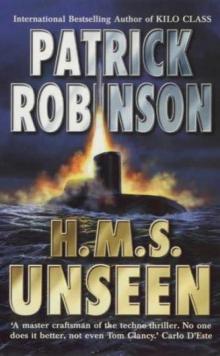 H.M.S. Unseen am-3
H.M.S. Unseen am-3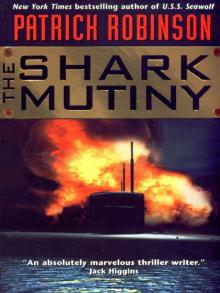 The Shark Mutiny (2001)
The Shark Mutiny (2001)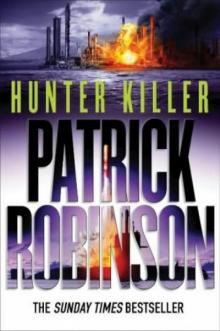 Hunter Killer am-8
Hunter Killer am-8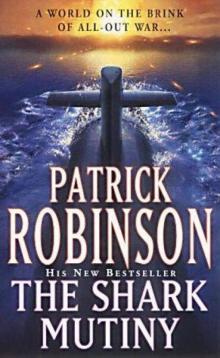 The Shark Mutiny am-5
The Shark Mutiny am-5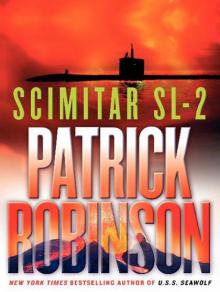 Scimitar SL-2
Scimitar SL-2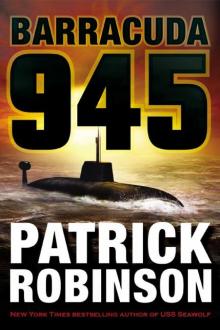 Barracuda 945 am-6
Barracuda 945 am-6 Hunter Killer
Hunter Killer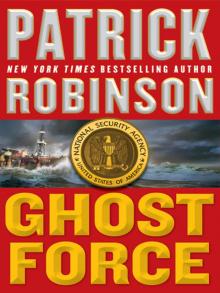 Ghost Force
Ghost Force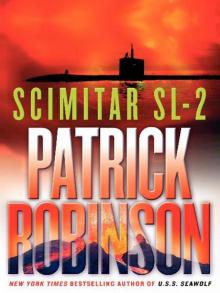 Scimitar SL-2 (2004)
Scimitar SL-2 (2004)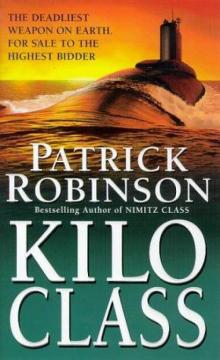 Kilo Class am-2
Kilo Class am-2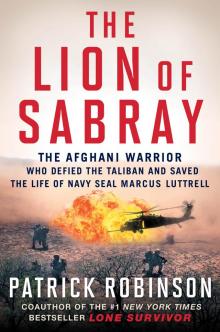 The Lion of Sabray
The Lion of Sabray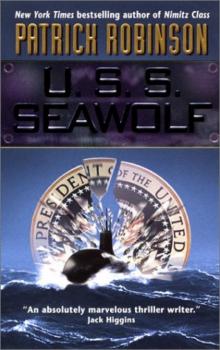 U.S.S. Seawolf am-4
U.S.S. Seawolf am-4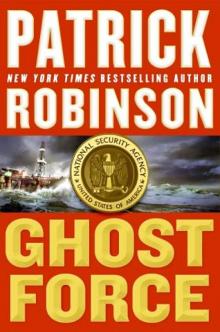 Ghost Force am-9
Ghost Force am-9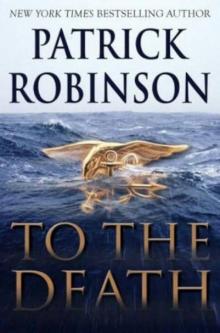 To the Death am-10
To the Death am-10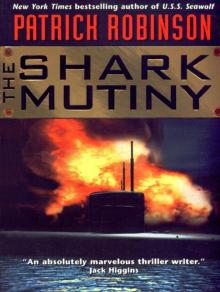 The Shark Mutiny
The Shark Mutiny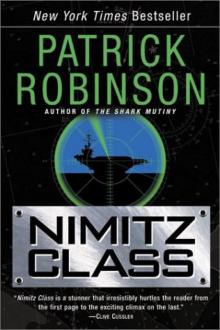 Nimitz Class am-1
Nimitz Class am-1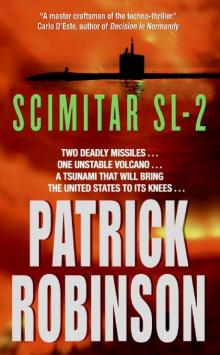 Scimitar SL-2 am-7
Scimitar SL-2 am-7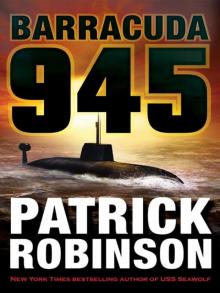 Barracuda 945
Barracuda 945 Intercept
Intercept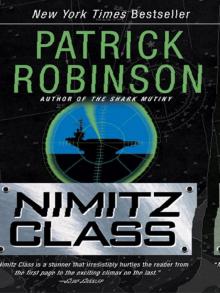 Nimitz Class (1997)
Nimitz Class (1997)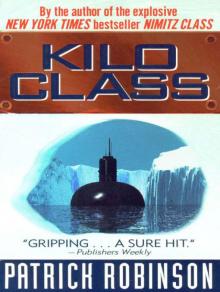 Kilo Class
Kilo Class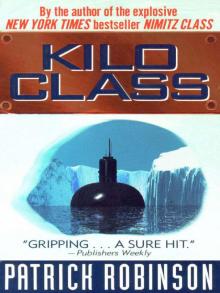 Kilo Class (1998)
Kilo Class (1998) Diamondhead
Diamondhead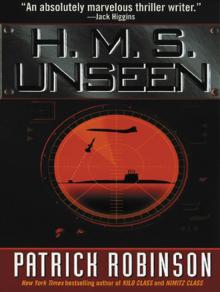 H.M.S. Unseen
H.M.S. Unseen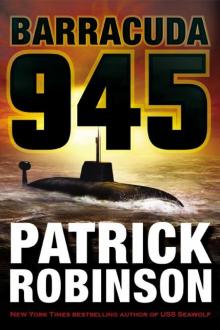 Barracuda 945 (2003)
Barracuda 945 (2003)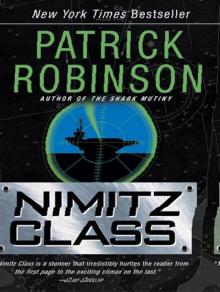 Nimitz Class
Nimitz Class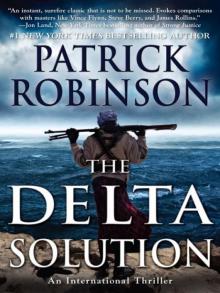 The Delta Solution
The Delta Solution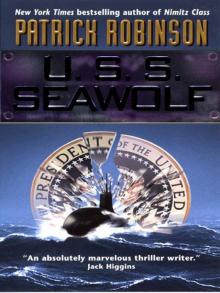 U.S.S. Seawolf
U.S.S. Seawolf